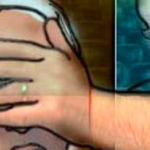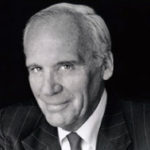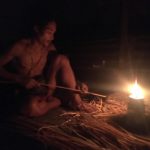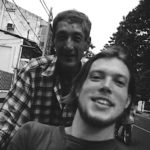Andrew McCarthy is an editor-at-large for National Geographic Traveler. He’s written for The New York Times, The Atlantic, The Wall Street Journal, Travel+Leisure, and many others. He was named “Travel Journalist of the Year” by the Society of American Travel Writers in 2010 and won their Grand Award in 2011. His memoir, The Longest Way Home, was published by Free Press in September of 2012. He is also an actor , having appeared in dozens of movies and on television.
How did you get started traveling?
I never really traveled far from my New Jersey neighborhood when I was a kid. The few places I did go — to camp in Maine, and to the Pocono Mountains for a few family vacations — are indelibly seared in my mind, for no great reason. Nothing eventful happened on these trips, but perhaps I was already becoming aware that travel was the way in which I would locate myself in the world. I began to travel a fair amount as an actor, but always it was for work; my time was not my own. I was picked up and dropped off; I saw places from the insulation of a movie crew.
The trip that led me to independent travel, the trip that changed my life, was when I walked the Camino de Santiago for 500 miles across Spain. I confronted a lot of the fears that had ruled me (without my knowing they even existed). I came home to myself on that trip, and began to step into who I wanted to be. It led to everything good that has happened since.
How did you get started writing?
I was traveling alone a lot, in Southeast Asia and Africa, and I tried to keep a journal, but I was never interested reading what I had written. I found it indulgent and embarrassing and redundant. Then one day I began to write down small scenes of things that happened to me — a young guy who offered me a ride on his scooter in Saigon; a girl in Malawi on New Years Day that I saw walking along with a large umbrella. Something about these scenes captured the essence of my experiences in these places. And since I was an actor, I knew about scenes, setting place, dialogue, action and detail. So I wrote these scenes down. They said what I was trying to say in my journal. They were micro-events, but they were personal and they mattered to me. When I returned home, I stuck my notepads in a drawer. For years I did this.
What do you consider your first “break” as a writer?
I knew someone who knows Keith Bellows, the editor of National Geographic Traveler magazine, I asked them to arrange a meeting. Keith was curious enough to have a drink and hear what was on my mind. I told him I wanted to write for his magazine. He said, “You’re an actor.” I said, “But I know how to tell a story.” This was the right answer, but it took another year of my cajoling, emailing, pitching, for him to finally relent. I’m forever grateful.
As a traveler and fact/story gatherer, what is your biggest challenge on the road?
The most important thing I always need to keep in mind, and always ask myself, is what’s my story? I can get a great interview, hear some amazing things from some wise chief who lives in a cave and no one has spoken to him for a hundred and ten years, but if it has nothing to do with the story, it’s just a nice conversation. I’m always reminding myself to stay on point, and keep and ear out for a good quote or a nice transition. Also, the more prepared I am, the more homework I’ve done, the more I’m open to surprises — and that’s the gold.
What is your biggest challenge in the research and writing process?
Again, with research, it’s easy to get lost in an eddy of fascinating information, but does it have anything to do with what I’m writing about? I sometimes tuck away information for a future story. It can come in handy; it just sits in the back of my mind, and comes up when it’s ready. As for the writing, I used to write the stories very quickly; I’d try to have a draft when I got off the plane home. I find that more and more difficult now. Perhaps my standards have just gotten stricter.
What is your biggest challenge from a business standpoint?
I got into this for pure passion. It was in no way a business decision. Travel changed my life, and I believe in the power of a good story. The one difficulty I’ve found is that coming from the acting world — a world I still inhabit — I’ve had to occasionally overcome certain people viewing me as an interloper. It’s usually their own nonsense getting in the way, and I understand it. I’m quick to recognize it and simply try to soften it by staying focused on the work, and it usually dissipates fairly quickly.
Have you ever done other work to make ends meet?
I was a dishwasher, later promoted to busboy, at The Pizza Pub in Seaside Heights N.J. I was also a terrible waiter later on. My day job is still as an actor, which is helpful for the writing, because as an actor I’m always looking for telling details. I’ve also had to say a lot of bad dialogue in my career, so when I hear a good quote a ten-bell alarm goes off in my head, and I grab it. Also, I’ve been directing more and more, and whereas the point of view of acting is very subjective, when directing you are at a remove, and you need to make sure to tell the story. If I have developed a style as a writer it’s in that switching from immersion in the detail and subjective point of view in the story (like an actor) and then pulling back and being objective (like directing).
What travel authors or books might you recommend and/or have influenced you?
Paul Theroux‘s travel books changed my life in that they opened my eyes to a way of travel that I hadn’t considered — namely, just go, go alone, go far, stay gone for long enough for it to affect you deeply — and that’s usually longer than is comfortable. I love Pico Iyer‘s deep interest and his sense of dispassionate investment. I think David Farley writes from a distinctly human point of view, which I like.
What advice and/or warnings would you give to someone who is considering going into travel writing?
Like any passion play, it needs to touch you deeply. Why do you travel, what are you looking for? Can you be open in sharing that? Think about these things before you set out. If you just want a free vacation at a cool hotel, this ain’t the way to get one.
What is the biggest reward of life as a travel writer?
I think if I can get one person to get up and go because of what I wrote — one person who might not have otherwise left home — I’ve done a good day’s work.





